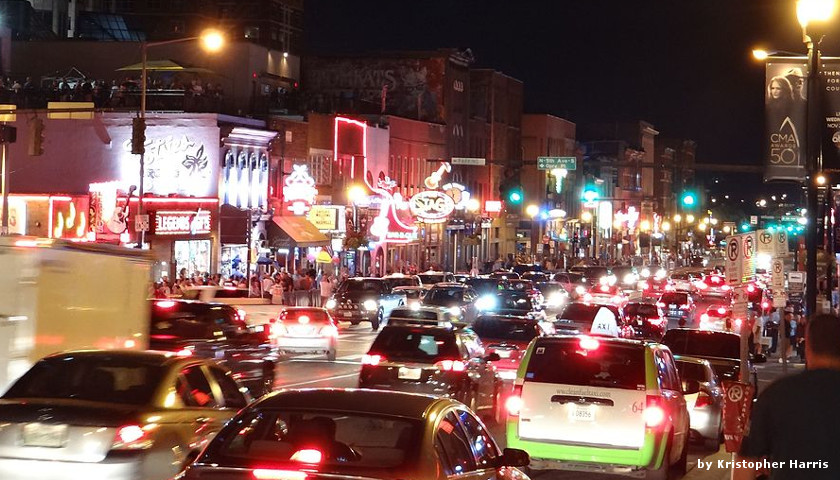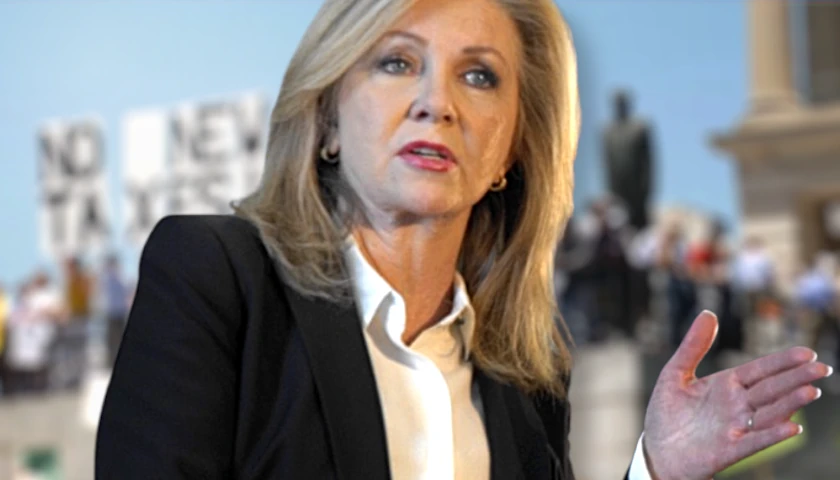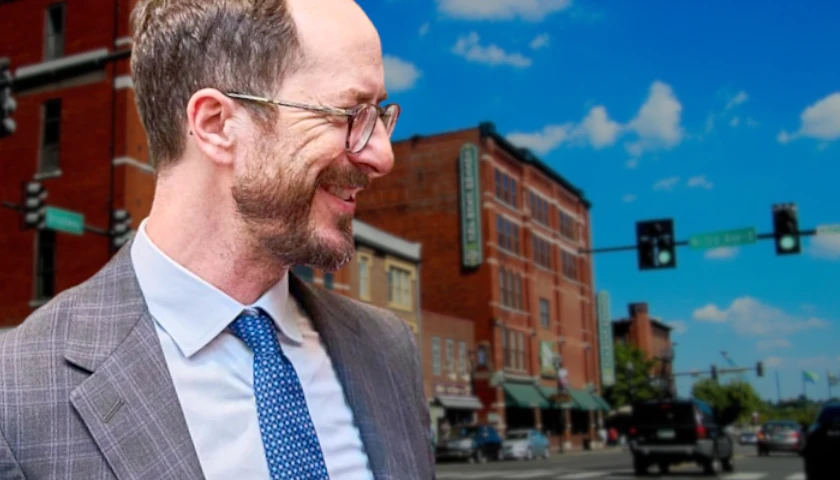A new pro-transit coalition will launch a campaign this weekend to get people on board with a proposed mass transit plan for Middle Tennessee, reports Nashville Business Journal.
Called Transit for Nashville, the coalition will go door to door in Germantown on Saturday to collect petition signatures.
Leaders expected to appear at Saturday’s event include Nashville Mayor Megan Barry, Shelly Courington, advocacy director for AARP Tennessee; Clifton Harris, president and CEO of the Urban League of Middle Tennessee; and Ethan Link, program director for Southeast Laborers’ District Council.
Barry, a progressive Democrat, is a big champion of the $6 billion regional transit plan and is committed to putting a referendum on the ballot next year to raise taxes for the project. The IMPROVE Act passed earlier this year by the state legislature allows local governments to raise taxes to fund mass transit. The tentative regional plan calls for light rail and rapid buses and would be phased in over 25 years.
Mass transit critics say there are less costly and cumbersome ways to address traffic problems associated with growth.
Tea Party activist Ben Cunningham is leading an effort to put a referendum on the ballot next year that would limit Metro Nashville’s debt level, which could dash hopes for mass transit.
Cunningham and others say Metro leaders should consider other ways to address traffic, such as by encouraging carpooling, working from home, staggering office hours and using rideshare programs, as well as through creating express lanes with digital pricing and making better use of buses.
The Nashville Business Journal has also reported on the creation of a political action committee, called Citizens for Greater Mobility, that is aiming to raise $2.5 million to support Barry’s efforts to sell the public on mass transit. The new PAC has ties to the Nashville Area Chamber of Commerce, and is working with Transit for Nashville. Citizens for Greater Mobility is paying Robin Alberts-Marigza, who will be Transit for Nashville’s campaign manager and previously served as campaign manager for U.S. Rep. Jim Cooper (D-TN-5) and state Sen. Jeff Yarbro (D-Nashville).
The regional mass transit plan calls for light rail along Gallatin Pike, Charlotte Pike, Murfreesboro Pike and Nolensville Pike, and for light rail connecting Nashville and Clarksville, as well as for rapid buses.
A report released last month by the Metro Transit Authority, which analyzed the potential for light rail along the four Nashville corridors and bus rapid transit along Dickerson Pike, concluded that “there are no fatal flaws in any of the corridors that would preclude the development of high capacity transit with respect to right-of-way, grade, or topography.” The report did, however, acknowledge some “pinch points” and “other challenges where design of high capacity transit will require intense collaboration among project designers, neighborhoods in proximity to these corridors, adjacent property owners, the Tennessee Department of Transportation, and related stakeholders such as CSX Railroad.”
But the MTA report said that “none of the challenges identified are unique to Nashville or these corridors, and similar challenges have been addressed successfully in many other cities as described in this report. Indeed, some of these challenges may present opportunities to develop neighborhood benefits beyond the development of high capacity transit.”
The MTA report did not examine the northwest corridor from Nashville to Clarksville, or the existing Music City Star commuter rail from downtown Nashville to Lebanon.
Malcolm Getz, an economics professor at Vanderbilt University, released a study in June challenging the conventional wisdom among promoters of mass transit. His report, which he issued on his own and not officially through the university, said that mass transit has not been shown to reduce congestion. The report also said that putting light rail in the middle of major Nashville roads would cause problems with traffic flow. Also, mass transit commutes would be longer than many people anticipate, the report said.






[…] has been working to build a variety of coalitions to back her plans, but critics have said she doesn’t appear to be listening to ordinary […]
[…] a referendum on the ballot next year to raise taxes for mass transit, and pro-transit groups are stepping up efforts to win over the public. However, Cunningham is advocating for a referendum that would limit […]
Same old baloney. This has played out time after time. BIG promises about reducing congestion for just a few measly billions of dollars. Once the citizens (you and me) are duped into buying this line of garbage the excuses and demands begin such as…
1. Well yes we said that but new information has come up that makes the cost 4 times as much and the schedule 3 times as long (actually the project never ends)
2. We are going to up your taxes because the usage has not met our (unrealistic) projections and there is a need to continue operating a train carrying 3 people for 5 miles.
3. The additional congestion will end in 5 years after we complete construction – construction that will actually take 10 years and truckloads more money.
4. More money. More money. More money.
Get real. Congestion will be with us until the cows come home. The question is simply how much money and inconvenience are we tax payers willing to pay for while the “leaders” grope around in the dark for nonexistent answers.